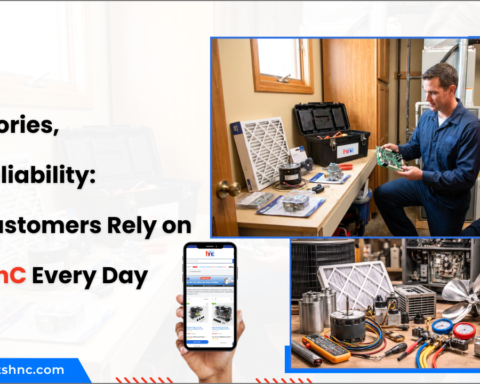In today’s fast-paced business world, delivery fleets play a crucial role in ensuring goods are transported efficiently and on time. However, managing a fleet involves juggling numerous factors such as route optimization, vehicle maintenance, fuel management, and driver behavior. The introduction of GPS technology has revolutionized how companies handle these challenges, particularly through GPS Tracker and dash cams with GPS. By leveraging GPS tracking systems, businesses can monitor their fleets in real-time, optimize routes, improve driver safety, and significantly reduce costs.
This article will provide a comprehensive analysis of how GPS technology can enhance delivery fleet efficiency, discussing the key factors that influence fleet performance, the trade-offs involved in balancing various factors, and the challenges businesses face when implementing these technologies. We will explore how GPS tracking systems and dashcams GPS trackers can be strategically used to improve fleet management, and consider the broader impact these decisions have on operational success.
The Role of GPS Technology in Fleet Management
GPS technology, in the form of GPS trackers and dash cam with GPS, has become integral in optimizing fleet operations. These devices offer significant advantages by providing fleet managers with the tools to monitor vehicles and drivers in real-time. The key benefits of using GPS tracking systems in a delivery fleet include:
- Real-time Tracking: GPS systems allow managers to track vehicles in real-time, providing accurate location data for each truck or delivery vehicle. This capability is essential for efficient route planning, reducing delays, and ensuring that deliveries are made on time.
- Route Optimization: By collecting and analyzing data from GPS trackers, fleet managers can determine the most efficient routes for their drivers. GPS systems can provide insights into traffic conditions, road closures, and alternative routes, enabling managers to make adjustments as needed. This helps reduce fuel consumption, shorten delivery times, and minimize idle time.
- Improved Driver Behavior: Dash cam GPS trackers offer a dual benefit by combining GPS tracking with real-time video surveillance. Fleet managers can monitor driver behavior through the footage, identifying unsafe driving practices such as harsh braking, speeding, or distracted driving. This allows for better training, performance evaluation, and safety measures.
- Fleet Maintenance: With GPS technology, fleet managers can monitor the health of their vehicles by tracking mileage, engine diagnostics, and fuel usage. This proactive approach to vehicle maintenance helps reduce downtime and extends the lifespan of the fleet.
- Cost Savings: Efficient routing, fuel monitoring, and better driver behavior all contribute to substantial cost savings. By optimizing routes and reducing fuel consumption, businesses can save on fuel costs, which are typically one of the largest expenses for delivery fleets. Additionally, real-time tracking enables faster response times to incidents or breakdowns, reducing costly delays.
Key Factors Impacting Fleet Efficiency
While GPS tracking systems and GPS tracker with dashcam technology provide numerous benefits, several key factors influence the overall efficiency of a delivery fleet. It is important to consider these factors when making decisions about fleet management:
- Vehicle Types and Usage: The types of vehicles in a fleet significantly impact its efficiency. Different vehicles have varying fuel consumption rates, maintenance needs, and storage capacities. For example, refrigerated trucks require different GPS systems and maintenance schedules than standard delivery vans. Tailoring GPS technology to the specific needs of each vehicle type ensures maximum efficiency.
- Driver Training and Behavior: GPS technology alone cannot guarantee optimal fleet efficiency. Driver behavior plays a significant role in how efficiently a fleet operates. Training drivers to adhere to best practices, such as maintaining safe speeds, avoiding unnecessary idling, and following optimal routes, can improve overall efficiency. Dash cam GPS trackers help reinforce this by providing fleet managers with real-time feedback and footage to address any driving concerns promptly.
- Traffic and Weather Conditions: Traffic congestion and inclement weather can create delays, impacting the overall efficiency of a delivery fleet. While GPS tracking systems can help avoid traffic hotspots, unforeseen weather events such as storms or heavy snowfall can still cause disruptions. Fleet managers need to be flexible and responsive to changing conditions, using GPS technology to adjust routes and schedules as needed.
- Fuel Management: Fuel is one of the most significant expenses for any delivery fleet. GPS tracking systems can assist with fuel management by providing insights into fuel consumption patterns, helping to identify inefficient driving behaviors such as excessive idling or rapid acceleration. However, fuel-efficient driving alone is not enough. Managers must also consider vehicle maintenance, the use of fuel-efficient routes, and the type of fuel used in the vehicles to maximize savings.
- Regulatory Compliance: In many industries, fleet operators must comply with local, state, and federal regulations related to transportation, safety, and driver hours. GPS tracking systems can assist in ensuring compliance by providing accurate logs of driver hours, location data, and vehicle speeds. By using GPS technology, fleet managers can avoid costly fines and penalties, ensuring that their operations remain compliant with regulations.
- Data Integration and Analytics: GPS tracking systems generate vast amounts of data, from vehicle location to driver behavior and fuel consumption. For fleets to run efficiently, businesses must be able to collect, analyze, and interpret this data effectively. Integrating GPS data with other business systems, such as customer relationship management (CRM) tools and enterprise resource planning (ERP) systems, allows for more informed decision-making. Data analytics can help identify patterns, predict maintenance needs, and optimize fleet performance over time.
Balancing Trade-offs in Fleet Management
While GPS technology offers numerous advantages, fleet managers must also consider the trade-offs involved in implementing these systems. Here are a few of the key trade-offs that may arise:
- Initial Costs vs. Long-Term Savings: The upfront cost of installing GPS systems and GPS tracker with dashcam devices can be substantial. However, these costs should be weighed against the long-term savings they provide through route optimization, fuel management, and reduced downtime. Businesses should carefully assess the potential return on investment (ROI) before committing to GPS technology.
- Privacy vs. Safety: The use of dash cams GPS trackers raises concerns about driver privacy. While these devices can significantly enhance safety and monitor driver behavior, drivers may feel uncomfortable with the constant surveillance. Fleet managers must balance the need for safety with respect for employee privacy, ensuring that the data collected is used appropriately and transparently.
- Automation vs. Manual Monitoring: GPS tracking systems provide valuable real-time data, but businesses must decide how much to automate their fleet management processes. Relying too heavily on automated systems may lead to missed opportunities for human oversight and decision-making. Conversely, manual monitoring can be time-consuming and prone to errors. The key is to find a balance that allows for effective automation while maintaining human involvement when necessary.
- Technology Reliability vs. Operational Dependability: GPS technology can sometimes be subject to technical issues, such as signal loss or device malfunctions. These issues can disrupt fleet operations, particularly if real-time tracking is critical. It is important for businesses to invest in reliable technology and have backup systems in place to ensure that the fleet operates smoothly even if there are occasional GPS tracking failures.
- Comprehensive Data vs. Overload: GPS systems generate a wealth of data, but too much data can lead to information overload. Fleet managers may struggle to process and act on large amounts of information in a timely manner. It’s essential to focus on the most relevant metrics, such as route efficiency, fuel consumption, and driver safety, while filtering out less useful data.
Challenges in Implementing GPS Technology
Implementing GPS technology in a delivery fleet can present several challenges:
- Integration with Existing Systems: Many businesses already have established fleet management systems in place. Integrating GPS tracking systems into these existing systems can be complex, requiring time, resources, and technical expertise. Compatibility issues may arise, and employees may need training to use the new technology effectively.
- Maintenance and Upkeep: GPS trackers and dash cams GPS trackers require regular maintenance and updates to ensure they function properly. This includes ensuring devices are charged, data is stored securely, and software is up-to-date. Neglecting maintenance can lead to system failures and data inaccuracies.
- Adoption Resistance: Drivers and employees may resist the adoption of GPS technology, particularly when it involves surveillance through dash cam GPS trackers. Overcoming this resistance requires clear communication about the benefits of the technology, ensuring drivers understand how it can improve safety and efficiency.
- Data Security and Privacy: Storing and transmitting data collected from GPS trackers and dash cams raises concerns about data security. Fleet managers must ensure that sensitive data is protected from breaches and that privacy regulations are adhered to.
Final Thoughts
Improving delivery fleet efficiency with GPS technology is a powerful strategy for businesses looking to optimize their operations. By implementing GPS tracking systems and GPS tracker with dashcam devices, fleet managers can achieve greater visibility, reduce costs, improve safety, and enhance overall fleet performance. However, to reap the full benefits, it is essential to balance the trade-offs involved, consider the broader impact of decisions, and address the challenges of technology integration, driver adoption, and data security.
By understanding and addressing these factors, businesses can make informed decisions about their fleet management strategies and position themselves for long-term success in a highly competitive market. GPS technology is not just a tool for tracking vehicles; it is a strategic asset that can help shape the future of fleet operations.








